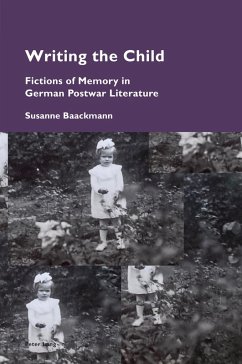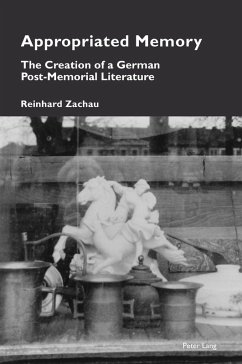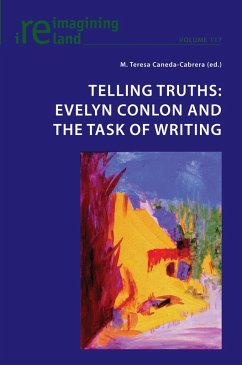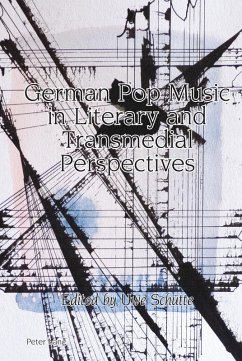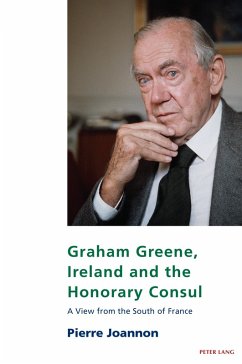
Writing the Child (eBook, ePUB)
Fictions of Memory in German Postwar Literature
Versandkostenfrei!
Sofort per Download lieferbar
Statt: 53,98 €**
40,95 €
inkl. MwSt.
**Preis der gedruckten Ausgabe (Broschiertes Buch)
Alle Infos zum eBook verschenkenWeitere Ausgaben:

PAYBACK Punkte
20 °P sammeln!
The child is never just a child. While the image, voice and gaze of the victimized child is a universal symbol of a failing world, it can be an equally potent aesthetic screen for historical obfuscation. Analysing selected works by Dieter Forte, Günter Grass, Gisela Elsner, Hans-Ulrich Treichel and Rachel Seiffert, Writing the Child considers the evolution of German cultural memory concerning wartime trauma and victimhood. In these works, the aesthetically conceived child comes into view as a memory icon, animated as much by collective fantasies as shaped by specific historical moments. Whose...
The child is never just a child. While the image, voice and gaze of the victimized child is a universal symbol of a failing world, it can be an equally potent aesthetic screen for historical obfuscation. Analysing selected works by Dieter Forte, Günter Grass, Gisela Elsner, Hans-Ulrich Treichel and Rachel Seiffert, Writing the Child considers the evolution of German cultural memory concerning wartime trauma and victimhood. In these works, the aesthetically conceived child comes into view as a memory icon, animated as much by collective fantasies as shaped by specific historical moments. Whose suffering has gained importance after the end of World War II? Who claims innocence or responsibility at the time and over time as the Nazi legacy reverberates into the future? Who remains implicated in the legacy of perpetration? In dialogue with the voices of German war children, the Kriegskinder, the texts echo but also contest exculpatory victimologies that have shaped German memory frameworks from the 1940s up to the post-1989 present.
Dieser Download kann aus rechtlichen Gründen nur mit Rechnungsadresse in A, D ausgeliefert werden.




